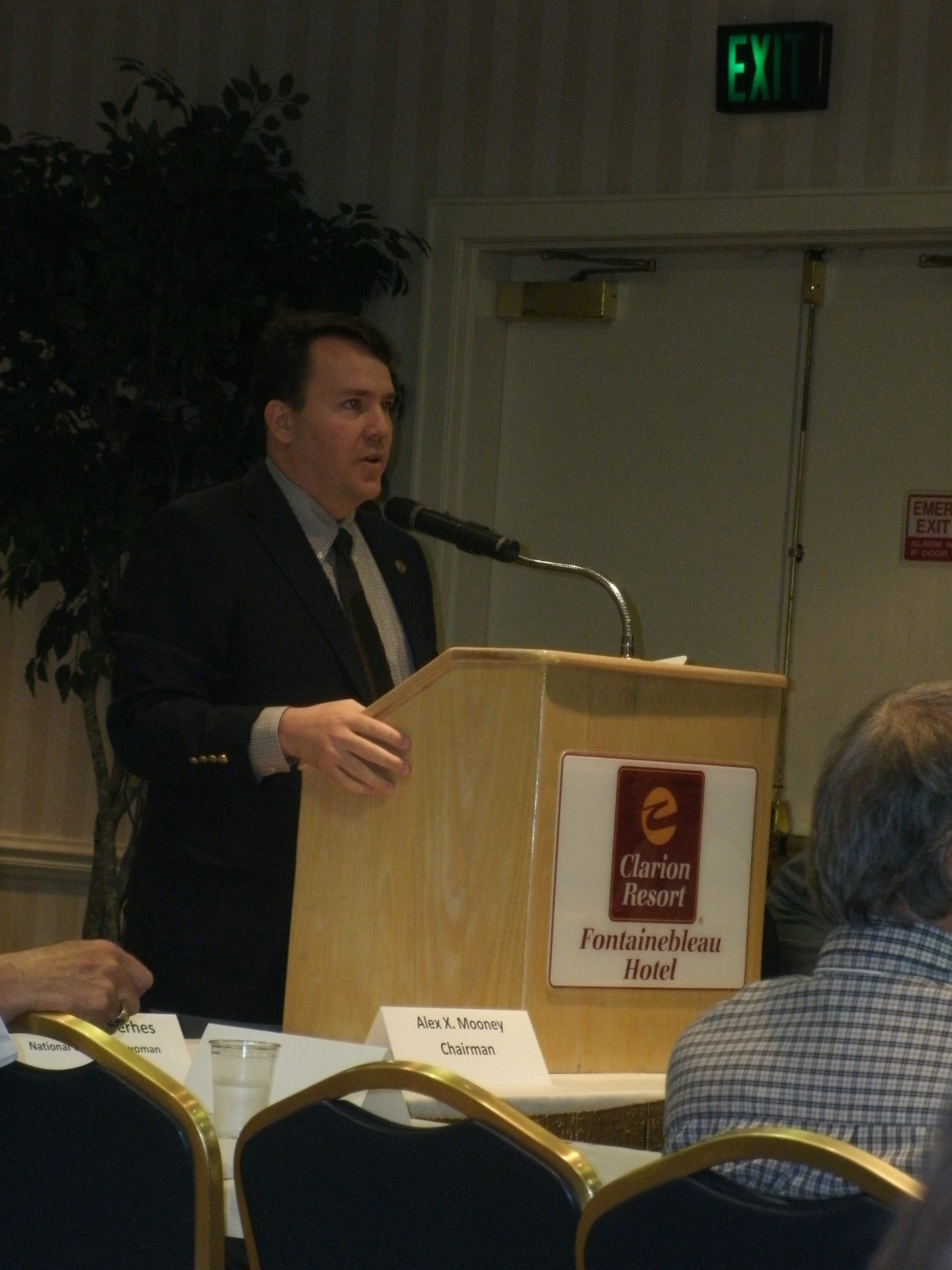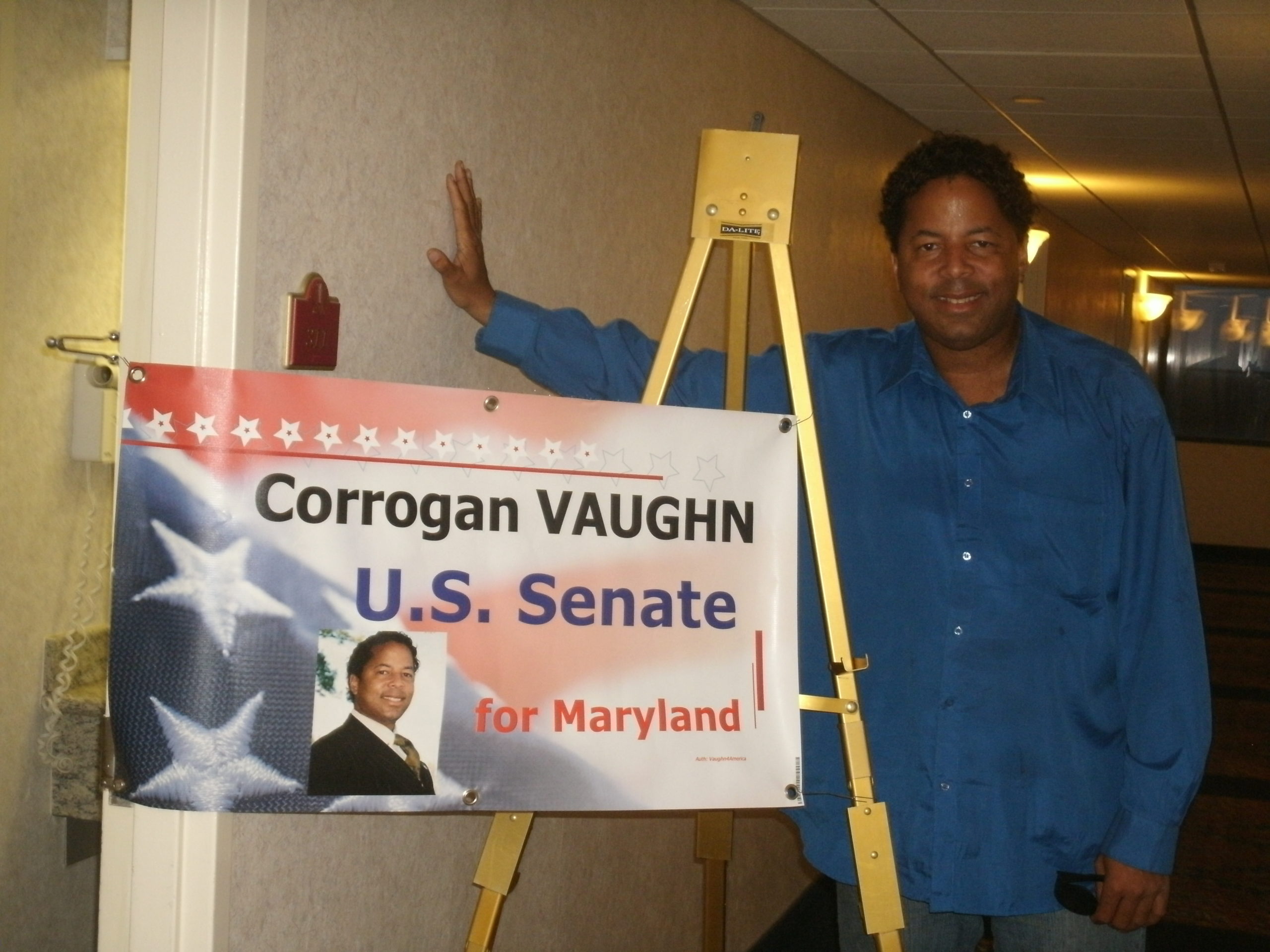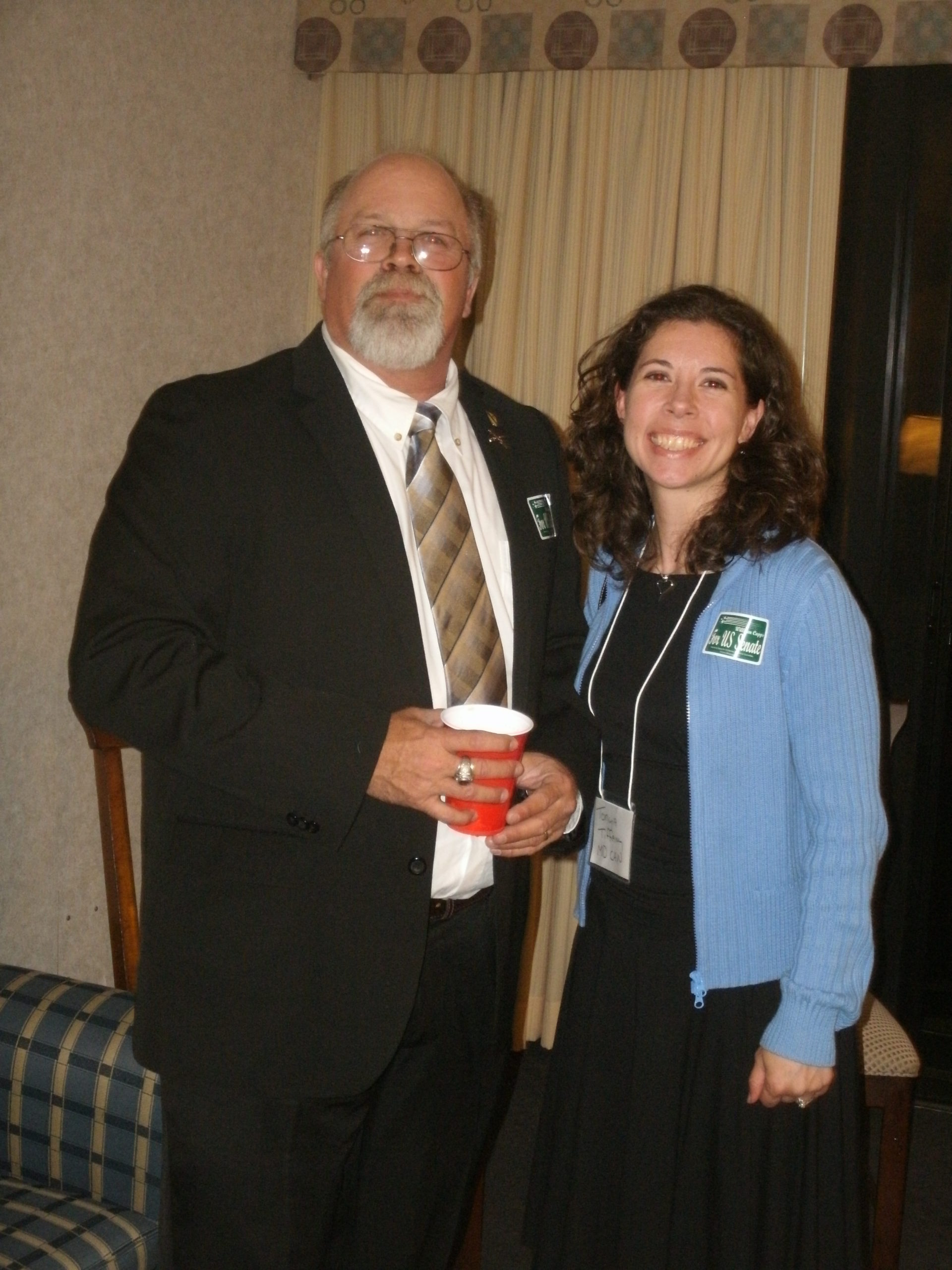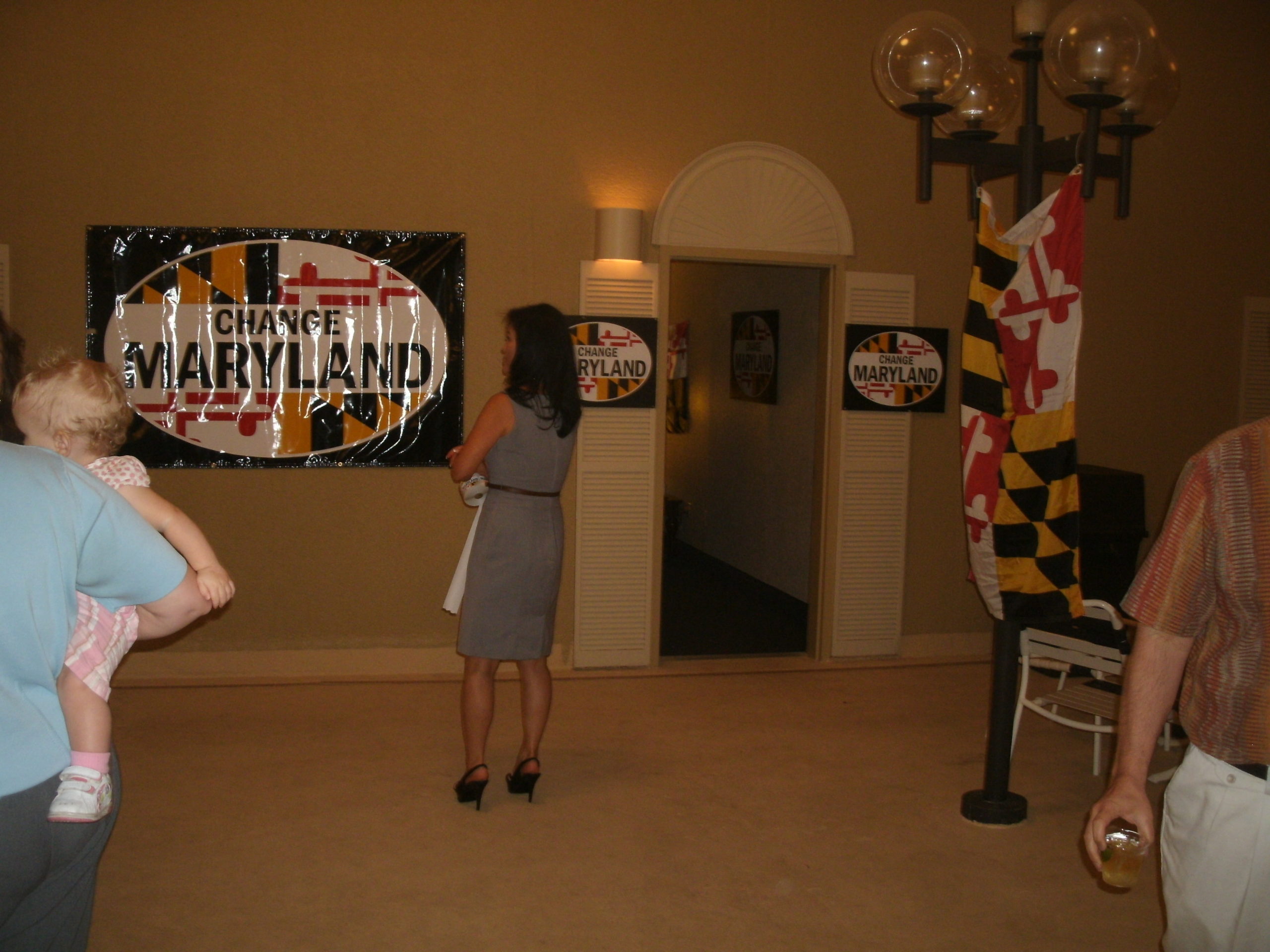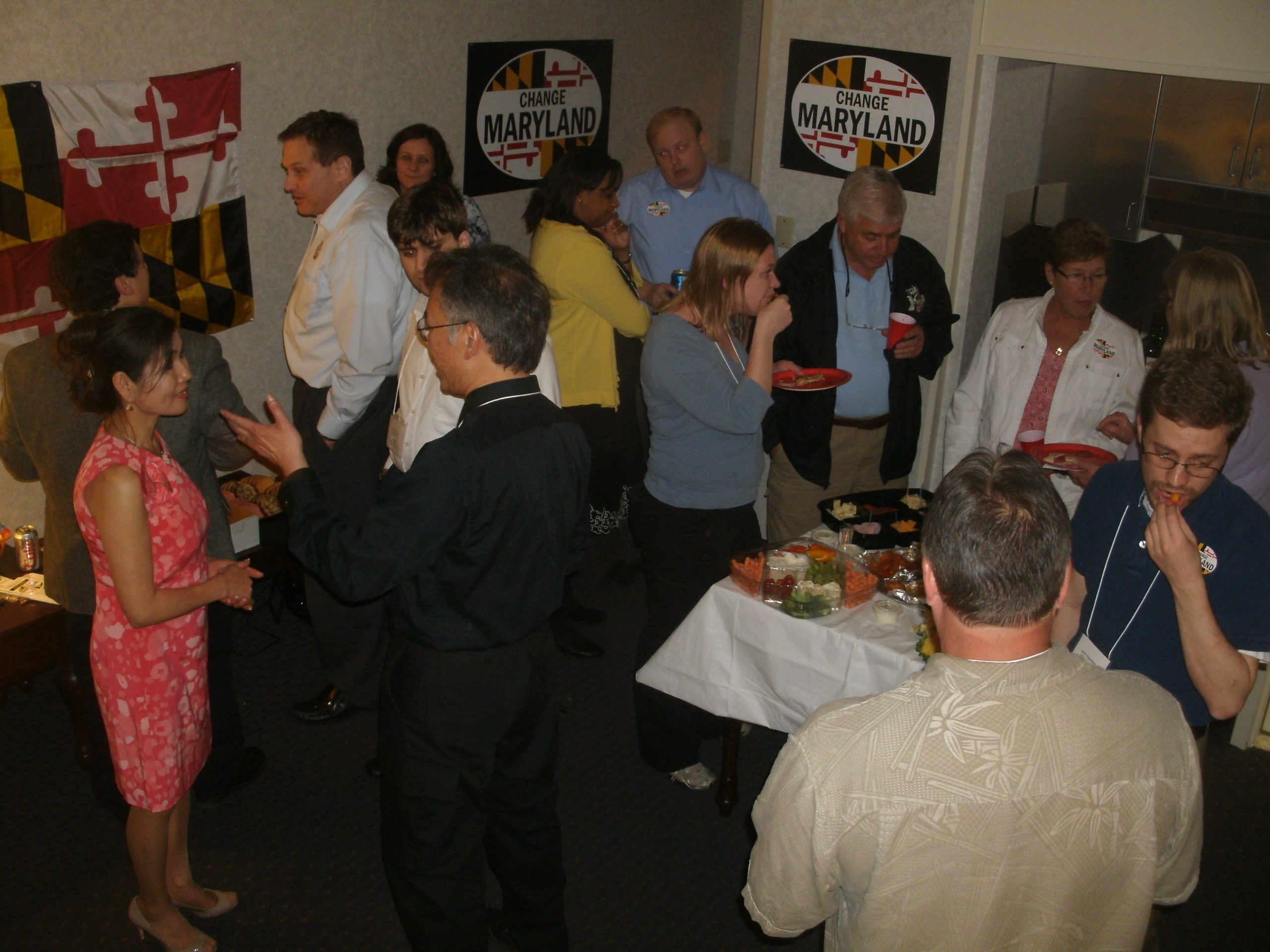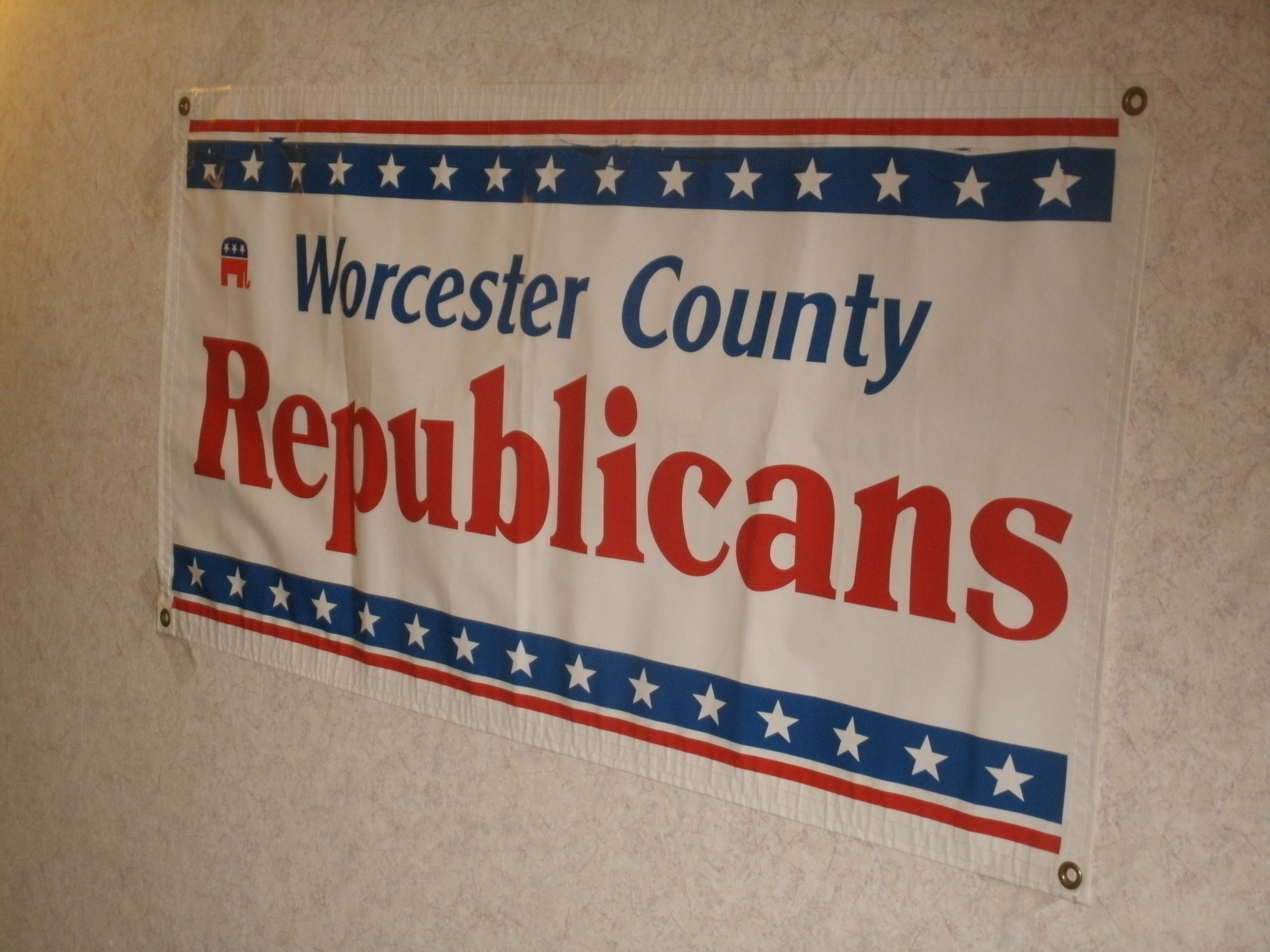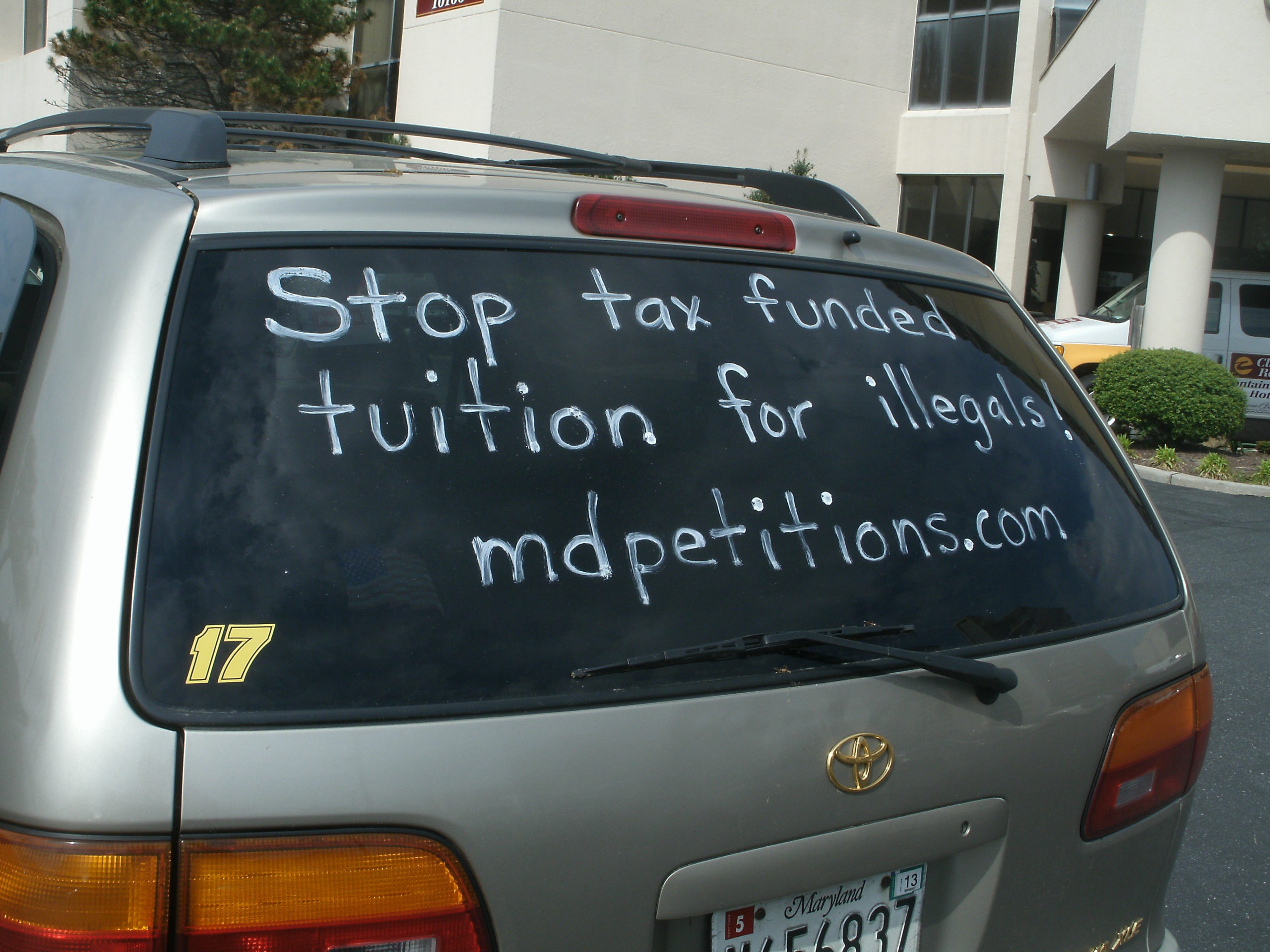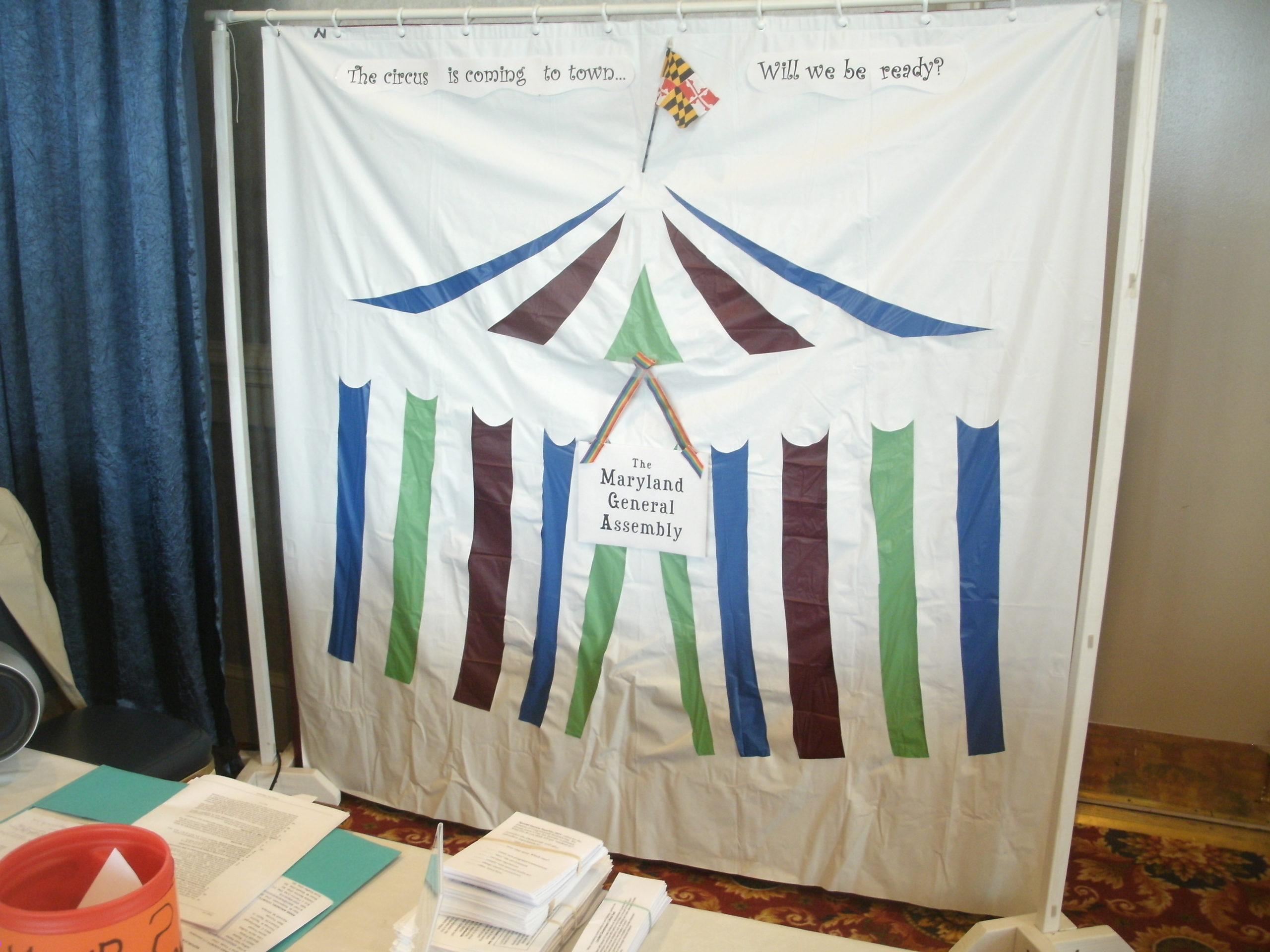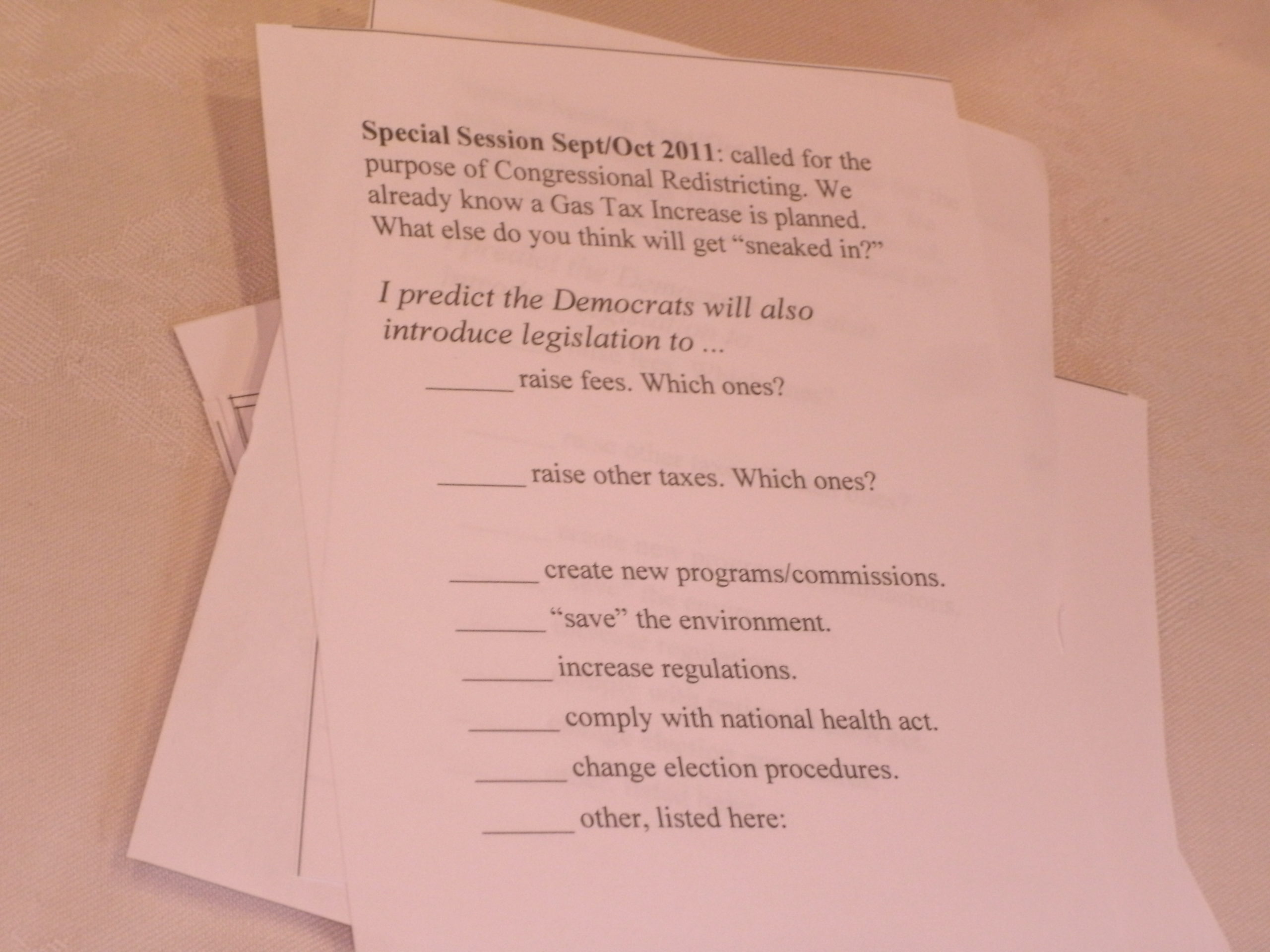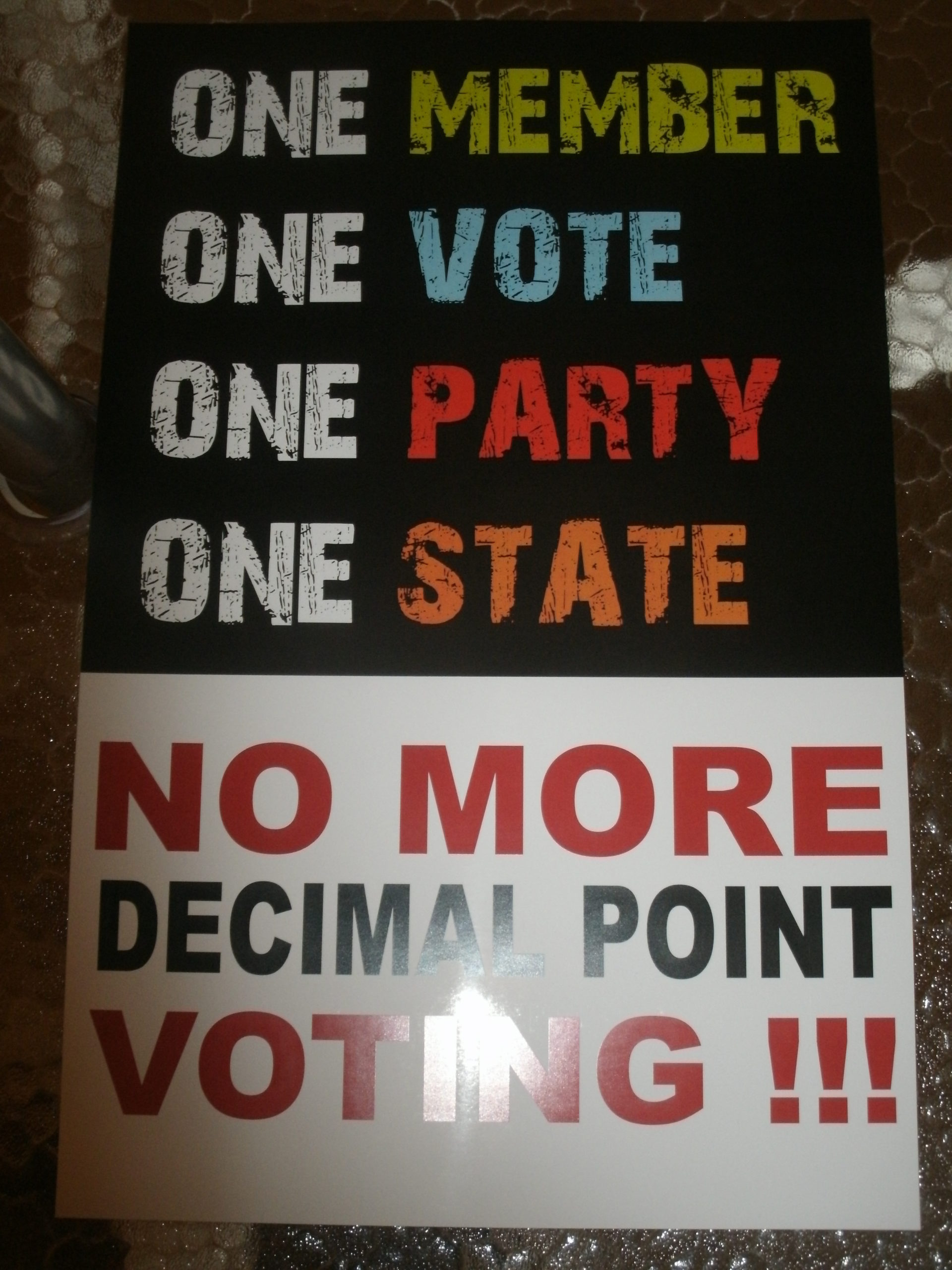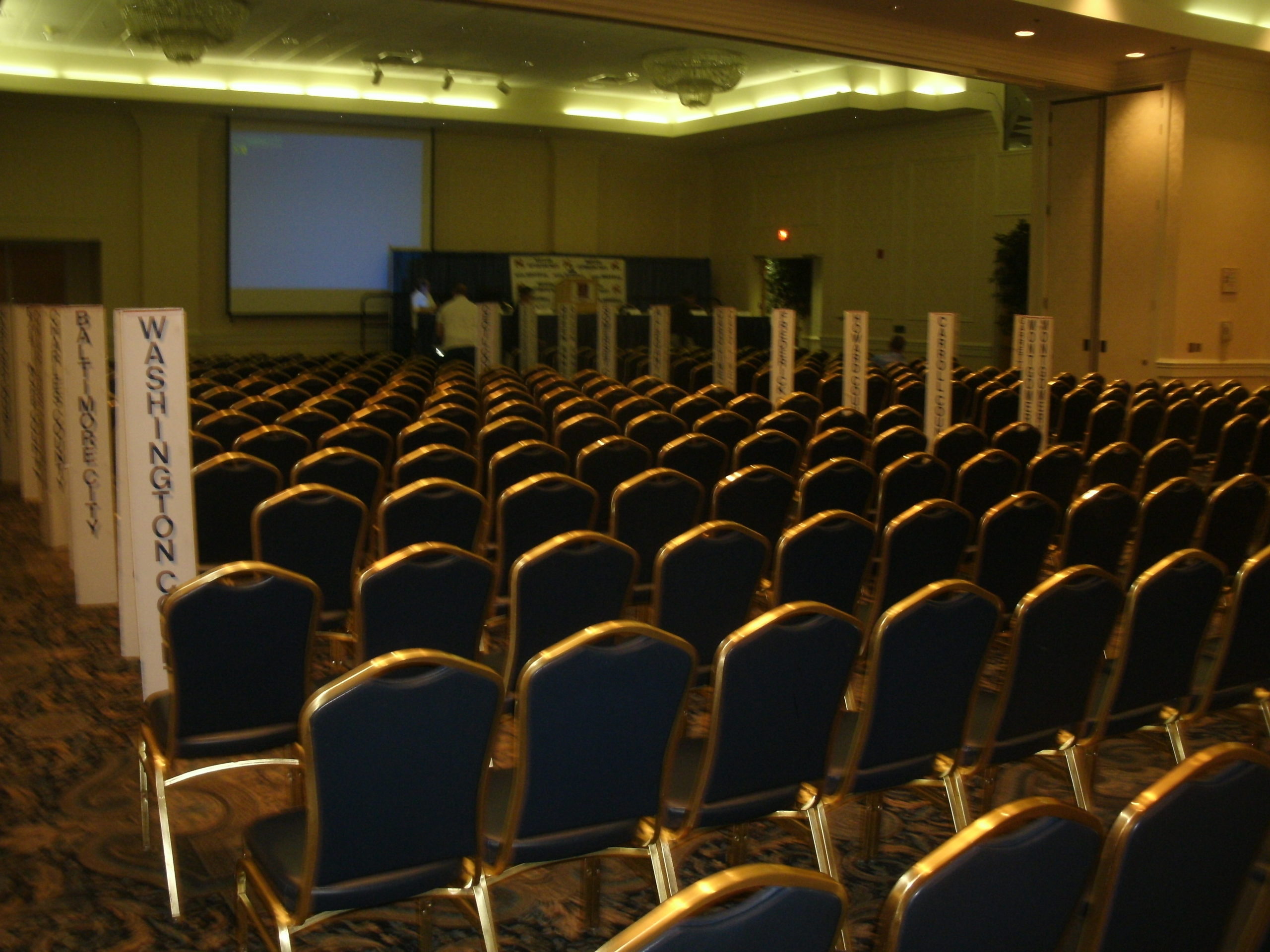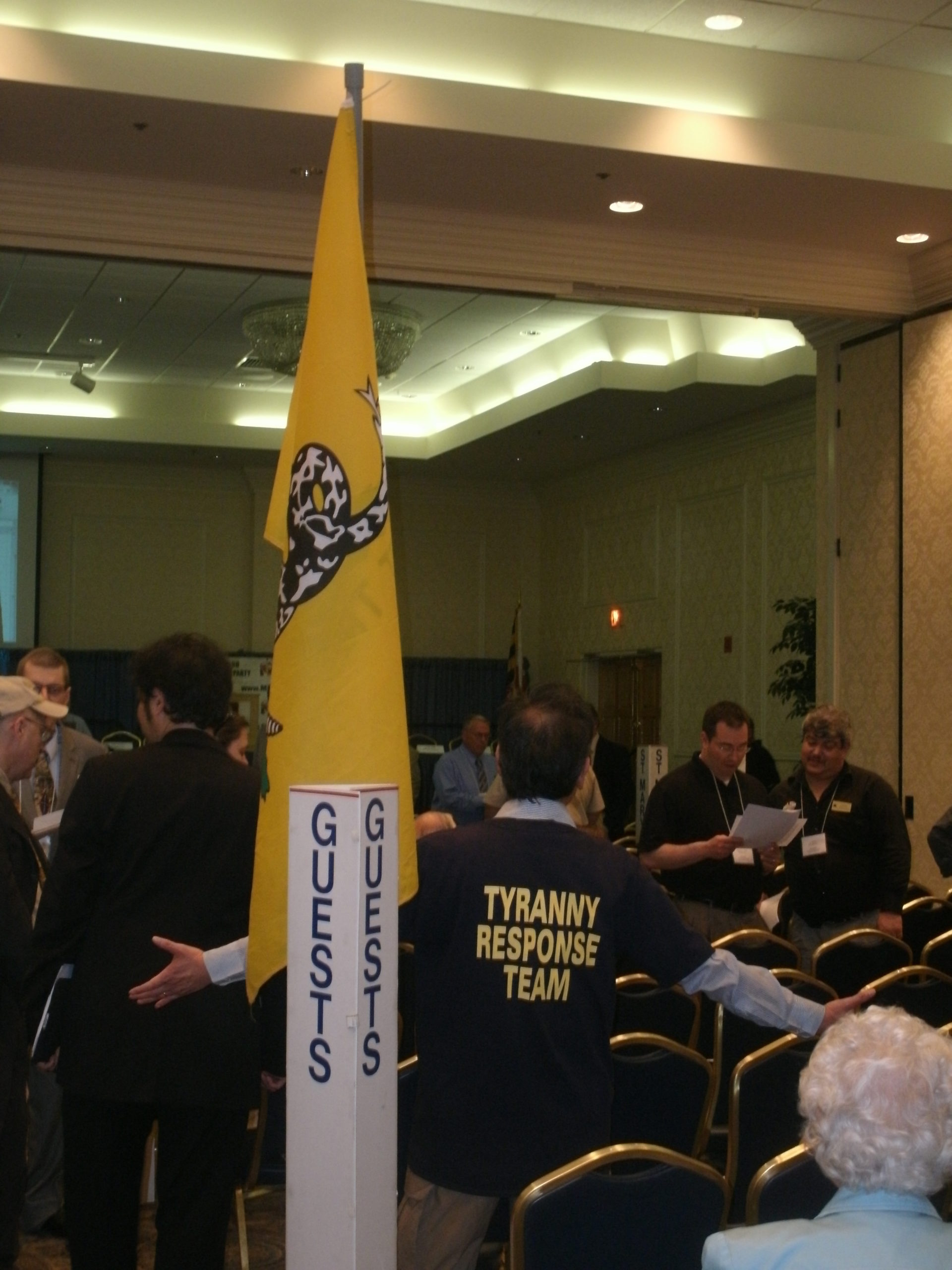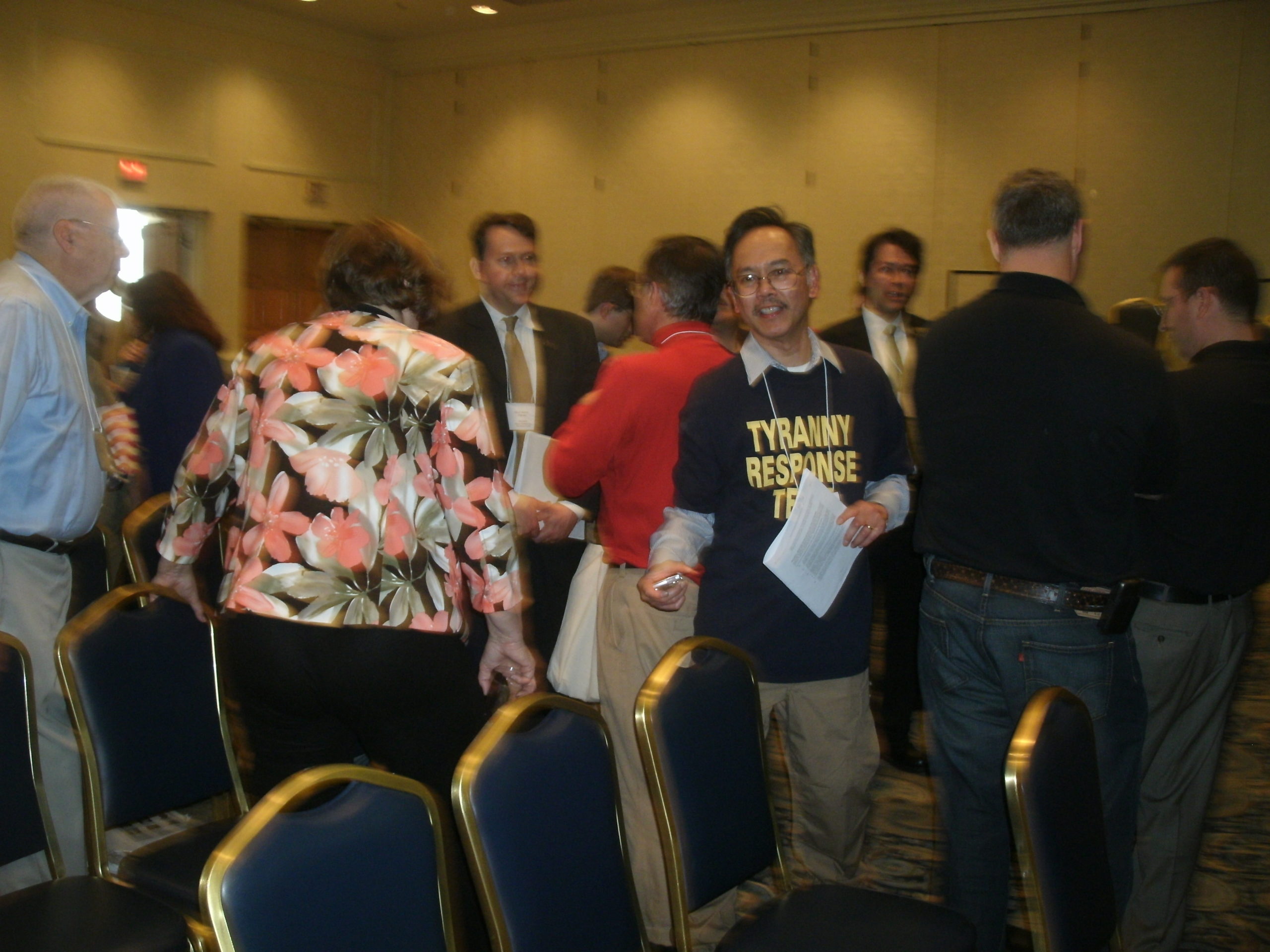Welcome to the debut of my newest feature, Ten Question Tuesday. This interview segment may or may not feature exactly ten questions, but the intent is to learn a little more about those personalities who help shape local and national politics.
Today’s guest needs no introduction to Maryland Republicans. Dan Bongino survived a ten-man Republican primary to easily win the U.S. Senate nomination last April and ran a spirited race against incumbent U.S. Senator Ben Cardin. The entry of independent candidate Rob Sobhani altered the race and blunted Bongino’s momentum; still, as we discuss here there were a lot of lessons to learn and useful information to be gathered for future GOP efforts in Maryland.
**********
monoblogue: The first thing I want to know is: have you even rested since the election?
Bongino: (laughs) For about four hours or so. The day after the election there’s always that feeling of, ah, you lost. There are no silver medals in politics – although there are different degrees of success and failure, of course – there is only one Senate seat and only one person sitting in it. It wasn’t me, and I felt like we worked really hard. But I didn’t take any time off…I had a workout the next day, which was something I wasn’t able to do on a regular schedule during the campaign which kind of cleared my head. My wife begged me at that point to take some time (yet) I don’t think there’s any time to take. This isn’t the time for pity, this is the time to find out what went wrong and fix it. So I haven’t taken any time – I’ve got a number of different things I’m working on right now; it’s a pretty extensive list.
monoblogue: I noticed you have a consulting business; in fact, when I arranged the interview I went through Karla (Graham) and she’s one of your (consulting firm’s) employees.
Bongino: Yeah, I think the consulting business…it was obviously slow, intentionally, during the campaign, because I just didn’t have any time to take it on. So there were things I could do and things I couldn’t do; I immersed myself completely in the campaign. That’s now picked up pretty well for me, we jumped right back in on that.
But we have a PAC we’re starting. Contrary to some rumors spread by some within the party who I think are more aligned with political positioning rather than political philosophy, my campaign didn’t finish anywhere close to in the red. We were actually cash-positive by a significant margin – well over $60,000 and it’s coming in more by the day. You don’t want to finish a campaign cash-positive – or cash-negative – but with us, we were relying on donations. I wasn’t Rob Sobhani, who funded it with my own money, or Ben Cardin, who had a steady stream of donations due to 45 years in politics. I had to rely on the money as it came in, and toward the end, the last four months we were out-raising Sobhani and Cardin combined by really heavy margins. We did not want to run a fiscally irresponsible campaign like our government, so we budgeted our money to be responsible – to ensure we had enough to pay our salaries at the end, to pay off the printing company, the internet management company…it’s like running a business. It came in so heavy in the last week that I think we would up with roughly $70,000 left over, which we’re going to use to fund Republican causes. It’s one of those initiatives now as well.
monoblogue: So basically you’ve become the Bongino PAC.
Bongino: Yeah, you can call it the pro-growth alliance, because it’s going to be a very targeted PAC. Everybody understands I’m a conservative – I don’t think that’s a mystery to anyone – but I want the PAC to focus exclusively on job growth and the economy. I’ve said all along the Republican Party, in my opinion, we don’t have a messaging problem – we have a marketing problem. I could not be clearer on that.
Our message, when you think about it, the President of the United States ran on our message. “I want to cut the deficit and control spending…I’m only going to raise taxes on people who won’t get hurt by it.” These are all messages that the Republican Party uses, that the President stole. Of course, he was disingenuous about it, but it just accentuates my point further that our message won a long time ago. We have a very serious marketing problem, and we have what I perceive in Maryland to be a lack of a short- and long-term plan politically.
When you ask some in the party “what’s the plan going forward?” like you would ask in a business “how will you launch this new product line?”…a business runs on three simple principles: how do you find new products for your markets, new markets for your products, and how do you shut down inefficiencies in your business. You can apply those principles to any business on the planet, including politics. Now we have to find out how we get our message to new markets, because we’re not reaching black voters, we’re not reaching Hispanic voters…I would debate we’re not reaching Montgomery County or Baltimore City voters at all, and we have to do that.
monoblogue: Well, here’s the one thing that I’ve noticed, and this has been true of almost any race statewide since I moved here, and I’ve been here since 2004. We seem to have a barrier of 40% we just can’t break, and the question is: if you have a message that sells, how come we can’t break the 40% barrier? What is the deal where you can’t swing the extra 10 percent plus one over to our side?
Bongino: I see it strategically, there’s a number of problems…it’s a big question. I’ll be talking about this at the MDCAN as well. There is no plan…let me give you an example because it’s easy to say that… Here’s some things we’ve been doing wrong with the swing voters.
The Democratic Party, despite literally a decade with Governor O’Malley – we’re closing in on the end of his term (and) ten years of really consistent monopolized Democratic rule – and I would debate even in the Ehrlich administration as well, and that’s not a knock on Ehrlich; I’ll explain that in a second – that’s nothing to do with him. (Despite the) monopolistic Democratic rule, the Democratic Party in Maryland has managed to out-register voters in contrast to the Republican Party, 400,000 to 100,000. How is that? How is that with BRAC, people moving into the state, frustration with the bag tax in Montgomery County, frustration with the income tax just about all over the state, frustration with the bottle tax in Baltimore City, that we as a Republican Party have had no consolidated effort to register voters at all?
And if you dispute that, I ask you where you saw the plan? Where did you read the blueprint on how to register voters? Now, there are counties out there that are doing a fantastic job, but there is no statewide…St. Mary’s County as an example. Carroll County registered five times as many Republicans than the Democrats have registered Democrats. Harford County, three times. I use St. Mary’s as the blueprint; they doubled the number of registrations compared to Democrats because it was a very consolidated, targeted, guided effort by the Central Committee and the clubs to get a mission done, which they accomplished. So that’s problem number one, registration.
The second problem: we’ve absolutely forfeited the black and Hispanic vote. I’ll give you an example from my campaign: I had actual donors – very few, but some donors – they asked me to not attempt to spend a lot of time in those places, deeming it a “lost cause.” Now they’d been beaten up there before with candidates who’ve gone down there to communities we should be in, and the results just haven’t been there. But that’s not an excuse to give up; because we haven’t found the right formula doesn’t mean we stop searching for the potion. Forfeiting the black and Hispanic vote is political suicide.
monoblogue: I completely agree. And that’s one thing that I know, we’ve paid lip service to that for years and I’ve been in the Republican Party here since 2006. Now there’s one other aspect I wanted to get into, and maybe it kind of goes in with your role as an outsider, but I want to back my readers up to the first time you and I met.
We first met when you came to our Republican club meeting down here in Wicomico County in the summer of 2011, and you brought (2010 gubernatorial candidate) Brian Murphy with you, which immediately piqued my interest because I was a Brian Murphy supporter in that primary.
Bongino: Right.
monoblogue: So given that as a starting point, the other portion of the question is: did that help you…how did it help you raise a national profile? I know Sarah Palin came into Brian Murphy’s campaign at a late date and endorsed him and that probably at least put him on the map – and I noticed she did the same thing with you. There seems to be a linkage between you and Palin because I just happened to hear a little podcast you did on a very Palin-friendly website. Obviously you’ve used Sarah Palin and people like that to build more of a national profile than any other Republican candidate in Maryland…I would say that even Bob Ehrlich doesn’t have nearly the national profile that you do. So how do we leverage that?
Bongino: Money, media, and volunteers are a campaign, so the question is how do you leverage a national profile, which is really just name recognition nationally. How do you leverage that to getting media, to getting extra money into the campaign, into getting volunteers? I think we did that quite well. A lot of…some insiders on both sides took shots at us afterward…saying we’d lost by a good and healthy margin. But I don’t think anybody took into account was the successful operation we’d put together considering we were only funded, really for the last four months, to finish second out of three candidates despite being outspent by a factor of almost 20:1.
Now we did that by using the national profile, and what I think is important and is an operation that has largely been lost on some of us – quite a few Republicans in the state – is a mastery of the media message. I think what our campaign did – and this isn’t me trumpeting my campaign on any kind of pedestal, I’m just speaking to the fact we got a lot of national media – we were very careful to manage the message. We understood the ideas that had punch, and Karla and I had what we called the “hook” – what was an angle to put Maryland on the map, to put this Senate race on the map? In some cases it was my Secret Service experience as a federal agent commenting on “Fast and Furious.” There were other cases, there were scandals, and unfortunately those scandals, I thought, took on a life of their own – Colombia scandal of course – but there was an opportunity there to defend an agency that I loved being a part of. I thought they were getting a bum rap – there were a few bad eggs and I didn’t appreciate that, so we took an opportunity there to defend the Service, that certainly helped.
Here’s a thing a lot of folks forget as well, and it’s one of the most important points here; the most salient that I can take out of this – when you get an opportunity to get in front of a national audience, whether it’s on Mark Levin, Glenn Beck, Sean Hannity multiple times – you have to be interesting. Not sensational, not scandalous – interesting. You have to say things that give people a reason to listen, or else you’re just another voice coming out of their car radio. And I was very careful to come in there very prepared about what I wanted to say and what I wanted to speak, so that then led to more media. Media begats more media, it is a virtuous cycle. When we did Hannity, then we went to Beck. When we did Beck, we went to Levin. When we did Levin, we would get on Fox.
monoblogue: It established credibility.
Bongino: Yes, and you get into a cycle, and then the contacts start to see you as a reliable, exciting guest that brings energy to the show and I think we did twelve or thirteen different appearances on Hannity. If you’re interesting, not only does that begat more media but that begats donors. Those donors…the way I would leverage that is if you donated $25 after I did an appearance on Hannity, I’d call you. Sometimes I’d spent half an hour on the phone with people, talking about issues that mattered to them – they weren’t even Maryland citizens. But those $25 donors became $250 donors, who became $1,000 donors, who despite the poll numbers continued to support me. Someone sent me an e-mail, as a matter of fact – I don’t think he wants me to give up his name, but he’s an out-of-state donor – who started very small and wound up donating a substantial amount of money to my campaign. He said, “I’m not investing in the Maryland Senate race, I’m investing in you.” And that’s how we built a database of over 20,000 donors. That’s a substantial list, a very credible list – nationally speaking, not just in Maryland.
And finally, volunteers. When you’re on television and radio it’s an obvious force multiplier. In the case of the Hannity show during drive time you’re speaking to 14 million people. I would always get out the website and we would get people on the mailing list, which grew into 10,000-plus names and 3,000 volunteers. And I would make sure with the volunteers – and I encourage other candidates to do this as well – your volunteers don’t work for you, they work with you. That’s not a soundbite; you have to act that way and portray that on your campaign.
When I would ask volunteers to show up for a sign wave, which a lot of people didn’t like the approach, they have no idea what went on in the back end. We would sign wave, and I had consultants who had never won anything telling me, yeah, that’s a waste of time. What they didn’t understand was, on the back end of our website I could analyze how many people went to our website after we’d go to a neighborhood and sign wave with twenty or thirty people – the exponential growth in volume in donors, volunteers, and traffic to our website was usually singularly located to that area I was the day before sign waving. But the genius consultants didn’t know any of that. I’m glad they don’t because they recommend other people don’t do it.
…I would show up with the volunteers, this was a really hot summer. We had something like a month straight of 90-degree weather; I’d show up there in my suit and I would stand out there an hour and a half, breathing in smog in Montgomery County, waving at cars as they came by with the volunteers who understood that it wasn’t just talk. I would talk, I would ask them about their families and how things were going, and it became a family atmosphere where it wasn’t just banter…that’s how we did that, leverage that whole model into something I think very special.
monoblogue: I think you would be a very good speaker on just getting media attention, and how to be interesting in front of the media. That’s something a lot of our candidates could use because we’re trying to get elected here. We have a message, but we need – that is the missing link. It’s hard to be interesting to people sometimes – it’s not always my strong point either.
Bongino: I’ve been watching a lot of our locals; some are very good and some of them I’ve watched, I think there’s a tendency to speak to a canned soundbite with the fear that, if you get off this script, you’re going to say something you don’t want to say. I would say if that’s the case you shouldn’t do media – you shouldn’t. You can win without it, you can do print interviews, but – not to knock him now – Rob Sobhani was the perfect example. I mean, Rob Sobhani essentially stopped doing serious live interviews at the end because every time he got on the air he would say something ridiculous – you know, the famous “I hit the jackpot” quote…the DREAM Act, he would say four or five different things, sometimes not realizing that obviously these interviews were going to be broadcast and cataloged and people would catch him on it – you have to go out there and be confident you’ve done your homework and you’re ready to go.
monoblogue: Here’s one thing… I’m curious about this, and I know I’ve seen media about this since the election. (Regarding) 2014, and I know – I’ve been in politics long enough to know you don’t want to rule anything out or commit to anything at this point. But is there something that you would not necessarily rule out, but you would favor as far as an office to run for?
Bongino: I’ve got a list together that a couple of trusted confidantes on the campaign and I are going through – best options, worst options, me being a business mind and a rational maximizer like any good economist would be – do a cost/benefit on each and a cost/benefit’s not just for me, but it’s for the party. I’ve said over and over that I don’t want to run for something that I think would be good for me but bad for the party; I think that would be hypocritical. But, yeah, there’s a number of things I’m looking at – I mean, I don’t think it’s any secret that the Governor’s race, the (Anne Arundel) County Executive race, there’s some other options out there as well that I’ve been considering. And there’s also the option of not doing anything electorally but staying involved in the process through the PAC. I’m writing now for Watchdog Wire, and I do pieces on RedState that are getting some really good traction, so there’s that possibility as well.
I really don’t know, but I’m going through the numbers and at the presentation at MDCAN I’m doing I’m going to be very deliberate, too, about what needs to get done numbers-wise because I don’t know if some of the candidates running now for some of these positions understand how difficult a statewide race is going to be. Not unwinnable – I ain’t never believed in that, and I believe in fighting the fight – but a statewide race in Maryland right now is going to be very, very tough, and it’s going to require a lot of money, a significant media profile that can bypass our local media, and a number of volunteers that is just going to be absolutely unprecedented.
monoblogue: Well, that makes sense because there is not a big, broad base of experience in the Maryland Republican Party on how to win a statewide race. The only person that’s done it in the last 40 years is Bob Ehrlich, and he lost two of them after he won one. So he’s not exactly got a great track record, either.
Bongino: Right. And one of the more disturbing aspects – and I’m not talking to the candidates we have now for governor, I’m talking about some others…you look at the Rumsfeld book, the “known knowns,” “known unknowns,” and “unknown unknowns” – the unknown unknowns are always the most dangerous thing because you don’t even know what you don’t know. I was very aware of that when I ran, I had no political resume and was very careful to start slowly. That’s why I got in so early, because I knew there were intra-county dynamics, there were party dynamics, and I wanted to be careful to avoid any significant controversies that would derail a campaign.
I’ve spoken to some who just don’t seem to understand that there are things going on in the state that they’re just completely not aware of…I’ll give you an example: I was at an event, one of them, it was in Montgomery County, and a woman walked in who was a very prominent, active Montgomery County Republican – donor, hosts events, is a terrific person – and he looked at me and said, “who’s that?” And I thought to myself, “wow, that’s not a good sign.” (laughs) It was one person, and I’m certainly not going to extrapolate too much from it, but that’s not the first time that happened.
I’ll bring up some specific county dynamics – the compressor in Myersville, that was a big deal. Water contamination on the Eastern Shore; I didn’t know about that, (it’s a) big deal. SB236 hurting the farmers: (another) big deal. The fact (some candidates aren’t aware) that there are farms in southern Maryland: a big deal…The fact in Calvert County, we have some struggles getting votes in Waldorf. These are things that a statewide candidate – you’re not going to have time anymore to learn this. I mean, I was two years out and I didn’t have a primary. These are things I’m more than happy – even if I decide to run, it’s not in my interest for any of my primary opponents to do poorly at all. I would be more than happy to share this information, and I mean that. I’m looking to do what’s best…if I did decide to run I know I can win on my merits and I don’t need to win by hoarding information. There’s just so much going on around the state and it’s not like Oklahoma (where) there’s just really a breadbasket of issues and that’s about it. Maryland is not like that; there are very regional problems; natural gas in western Maryland. These are all very important things and they need to know it all.
monoblogue: It’s not exactly “one Maryland” like our governor likes to claim.
Bongino: No, it’s not.
monoblogue: That’s a good place to wrap this up. I appreciate the time!
**********
Honestly, I could have spent another hour on the phone and there were other items I didn’t check off my list. But this lengthy read will have to do for now. Perhaps when Dan makes up his mind about 2014, I can arrange a return visit.
Next week’s guest will be Jonathan Bydlak, who heads the Coalition to Reduce Spending. It’s a recent addition to the advocacy groups which inhabit Washington, but professes a more unique angle and focus on their pet issue. Look for it next Tuesday.



